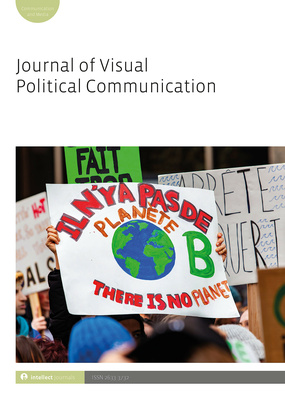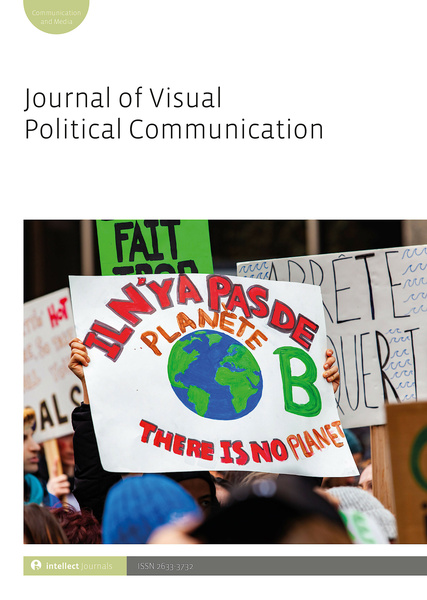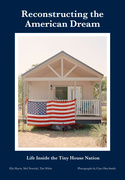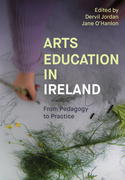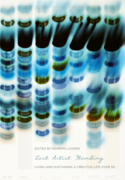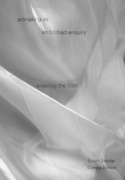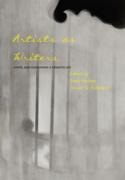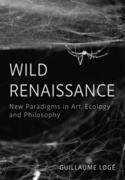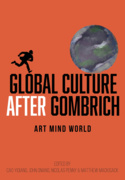General Call for Papers information
All articles submitted should be original work and must not be under consideration by other publications.
Journal of Visual Political Communication (formerly known as The Poster) is a forum for the study of visual rhetoric in the public sphere; a place to discuss why and how visual messages are thrust into the world and the media forms used to do so. The journal stands as a vehicle for the ideas of media theorists; for scholars of cultural studies and cultural materialism; for social psychologists of visual communication; for architects and designers of way-finding schemes; for philosophers of aesthetics and politics, society and linguistics; for social scientists, anthropologists and ethnographers; for political campaigners and artist activists; for communications researchers and visual communications practitioners.
We are looking for research contributions of a theoretical nature, from a practice-based perspective and from novel combinations of the two. We are also looking for visual contributions whose primary function is not research, but which illuminate the operation of the poster in the world.
Areas of interest for studies of visual-political communication include (but are not limited to):
- Is there a social disconnect with the normative narratives that mass communication depends on, rendering propaganda speechless?
- Is the rise of the Digital Public Sphere killing consensus politics, or saving us from a weight of overbearing myth?
- Does the disruption of large-scale monocultures by online communities mark an end for twentieth-century models of mass propaganda?
- Are the subalterns taking control?
- What happens to informed democratic systems when the rulers and the ruled fundamentally inhabit different worlds, shaped by different ideas?
- Universal translators: Are there communication methods that can speak across the divides?
- Can we 'mass customize' political communication to speak the same truth, in different tongues, to all audiences at once?
The relationship between culture and technology has shaped political communication since the time of the Sacra Congregatio de Propaganda Fide, and now emergent communications tools have widened the grasp and increased the reach of a political message. The rise of the Net has given individuals and small groups the same grasp and reach as the largest power-block, and the possibilities for technically mediated political communication keep expanding.More than timely, it has become imperative for researchers to examine the complex interplay between the means and methods of political communication and the possibility of a normative consensus in the political world.
Multimodality is a key element to understanding the use of images in combination with other forms of mediated communication. We therefore encourage scholars from both social and political science, as well as cultural studies, arts, and communication studies, to submit proposals for work for publication. The journal is looking for:
- Full papers of 7,000–9,000 words, plus illustrations on the issue's theme (for double-blind peer review). Rich illustration of the text is welcomed. Theoretical papers as well as methodological discussion are welcomed, but preferably in combination with empirical analysis of imagery. Case studies, comparisons across culture, or historical studies are invited.
- Artist/designer monographs: Extended scholarly pieces addressing the issue's theme (for double blind peer review). 10,000–25,000 words, plus extensive illustrations.
- Image and photo essays composed of illustrations, photographs, diagrams or schematics that use visual languages to communicate their stance on this edition's themes. Textual support may be added, if necessary.
Book Reviews
The Journal of Visual Political Communication invites you to submit reviews of books. Reviewers should focus on the relevance of the reviewed work to the field of visual political communication and the interests and concerns of its readers.
Reviews may be of recently launched books, or they may revisit classic works that have had high impact on the reviewer and/or the field of visual political communication. Reviews may cover a body of work including monographs (single-authored works) and edited collections. Reviews should be roughly 800 words. Details can be discussed with the editor, since length and review organization might vary depending on texts. The use of images from the work which is being reviewed is encouraged. The reviewers are expected to arrange permissions themselves. All references in the text should be according to the Harvard system, e.g. (Bordwell 1989: 9). Detailed manuscript submission guidelines are available online to download at https://www.intellectbooks.com/asset/8969/1/POST_NfC.pdf. Free review copies will be provided where possible. Any matters concerning the format and presentation of articles not covered by the above notes should be addressed to the Editor. If you plan to write a review or are interested in writing one, please contact the Book Reviews Editor, Dr Angelos Kissas.
Special Issue Call for Papers
‘Dark and Unethical Visual Politics’
Visual politics has gained significant prominence in recent years due to a series of controversial and unethical uses. Framing political actors, depicting contentious or satirical images, whether to build a positive interpretation or to mock authority, has always constituted a strategic and persuasive repertoire for political communication. Historically, the image was often seen as the last threshold for distinguishing facts from fakes. However, the digital environment has reconfigured this status, drawing increased attention to malicious uses of images and their relation to spreading mis/disinformation and biased content. This call for papers for a Special Issue of the Journal of Visual Political Communication welcomes theoretical and empirical contributions concerned with these contested uses.
This issue aims to bring together a body of studies focused on visual research challenges and agendas that emphasize images in contexts that are dangerous for democracy and that may pose risks to trust in institutions, threats to socio-environmental justice, or undermine current epistemic regimes, political opponents or minoritized groups. Manuscripts may present reflections on the dark side of visual politics or focus on case studies from different countries and regions. Topics may include, but are not limited to, discussions on:
• Ethical and epistemological boundaries of visual political communication
• Methodological aspects of investigating unethical uses of images
• Generative artificial intelligence images or political deepfakes during elections
• Hateful far-right memes, misogynistic and supremacist troll armies, and their political implications
• The image serving anti-immigration nationalism and authoritarian populisms
• Apocryphal visual campaigns and coordinated slanderous visual attacks
• Critical aspects of the visual politics of disinformation as well as historical and scientific denialism
• Fabrication of fake images of non-consensual pornography targeting political actors
• Problems generated by algorithmic discrimination in the political arena
• Cybersecurity issues concerning state visual surveillance, citizen privacy and abusive biometric recognition
• Controversial military use of computer vision in drones and autonomous weapons for human-unsupervised lethal attacks
• Alteration of visual evidence to mislead the justice system or create false narratives.
Full papers must range between 7000 and 9000 words and can be co-authored. Illustrations related to the issue’s theme are welcomed, as long as ethical limits for discrimination and graphic violence are taken into account and the restrictions of double-blind peer review are considered. Theoretical papers and methodological discussions are welcomed, but preferably in combination with visual material and empirical analysis of imagery. Comparative studies, historical analyses and case studies using qualitative or quantitative approaches are also invited. The Special Issue also accepts proposals for curation of images, including photos, illustrations, diagrams, memes or cartoons that relate to the dark and unethical uses of images, as long as copyright is fully respected.
The deadlines are as follows:
Submission of manuscripts: from 30 November 2024 – 31 May 2025
Manuscript evaluation: between May and October 2025
Author review (when applicable): October–December 2025
Publication scheduled for early 2026
Questions and queries can be addressed to the guest editor Viktor Chagas by e-mail at viktor@midia.uff.br
'Visual Political Communication in Africa’s Digital Sphere'
The importance of visuals in communication is never in doubt. Our contemporary world is largely mediated by visuals. Given the proliferation of visuals as a medium of communication, societies are increasingly creating “image junkies” which has led to “the most irresistible form of mental pollution” (Sontag 2003, 24). While Sontag raised such arguments two decades ago, technological developments and the coming in of different social media platforms has further enhanced the use of different forms of visuals in communication. Such an observation led to Schill (2012, 120) to call for an “urgent need for more research, both theoretical and applied, that examines the functions of visual symbols in political contexts”. While there is a growing scholarly interest in the intersection of visuals and political communication (Lilleker and Veneti 2023; Veneti et al. 2019), this research field has remained “one of the least studied and least understood areas” (Schill 2012, 119). Unfortunately, most of this interest is coming from the Global North unlike in the Global South where the state and art of political communication is yet to fully develop. For example, many politicians in the Global South, in particular Africa, are yet to have large enough budgets to hire political campaign strategists to handle their political campaigns.
Despite this being the case, scholars in Africa have argued that political communication is not universal, and called for the move towards African political communication (Omotoso & Faniyi 2017). African political communication is explained as being “grounded on philosophy and worldview which prioritizes African histories, cultures and values” (Omotoso & Faniyi 2017, 1; Omotoso 2013). Raising similar arguments, Eweka et al. (2017) note that western concepts cannot be used to make sense of African political communication. Karam and Mutsvairo (2022) called for the decolonization of political communication. In this realm, the aim has been to ensure that political communication research goes against the “epistemicides” that have been “committed on non-Western ways of knowing as they are denied the status of universality by the totalising Western way of knowing” (Ndlovu-Gatsheni 2014, 88).
Contemporary political communication is largely played in the digital space. Our interest is on online visuals as “other forms of political communication” outside the mainstream media (Wasserman 2019, 433). Social media platforms have been central in communicating, and managing political power. The importance of visuals in these social media platforms can arguably be seen in the manner in which politicians, for example, have used them to share their political rallies and meetings. Instagram and Tik Tok have emerged as the most significant visual platforms in political communication. In Africa, where political players mainly rely on traditional means like the use of legacy media, these players are slowly making their presence seen and felt on some of these platforms.
While soliciting papers that focus on visual political communication in the digital era, we are aware of the use of generative AI which has disrupted the field of visual political communication. Thus, an engagement on such disruptions is timely and needed. More so, we are mindful of the challenge that came with the influence of algorithms in this digital age which has led to decolonial scholars to caution researchers to be “the reproduction of colonial power structures in algorithmic practises” (Couldry & Mejias (2021, 5). Against this background, this call solicits papers that engage theoretically and methodologically with the field of visual political communication in the digital era in Africa.
The special issue aims to bring together innovative, thought-provoking contributions, from different fields, national and regional contexts, exploring a range of topics, including:
- Gender and visual political communication
- African political communication and visuals
- Disinformation, misinformation, and visual political communication
- The use/abuse of Artificial Intelligence (AI) in Visual Political Communication in Africa’s Digital Sphere.
- Audience research on visual political communication, and digital spaces
- Methodological considerations in researching visuals
- Theoretical and conceptual concepts of studying Visual Political Communication in Africa/ African Visual Political Communication
- Decoloniality and Visual Political Communication in Africa’s Digital Sphere.
- Ethical issues in Visual Political Communication in Africa’s
- Citizenship, activism, social movements, and visual political communication
- Satire/humour, and the use of visuals in political communication
- Political campaigns, electoral campaigns and the use of Visual Political Communication
Submission Guidelines
Deadline submission of extended abstracts (max 500 words and a brief author bio max 100 words): should be sent to tshumalungile@gmail.com and copy mphathisindlovu@gmail.com.
Full manuscript submissions should be submitted through the journal's website by clicking the submit button above.
Extended abstracts submission deadline: 13 February 2025
Decision on abstracts: 27 March 2025
Full manuscript submissions deadline: 30 July 2025
About the Guest Editors
Tshuma Lungile is a researcher in the Centre for Communication and Culture, Universidade Católica Portuguesa, Portugal and senior research associate at the University of Johannesburg. He holds a Ph.D. in journalism studies from the University of Johannesburg, South Africa. Lungile’s research interests are in visual culture, memory, and journalism.
Mphathisi Ndlovu is a professor in the Department of Journalism and Media Studies at the National University of Science and Technology in Zimbabwe. He is also a research fellow in the Department of Journalism at Stellenbosch University, where he received his Ph.D. in Journalism. Mphathisi’s research areas are in memory, digital cultures, nationalism, media theory, and journalism practice.

